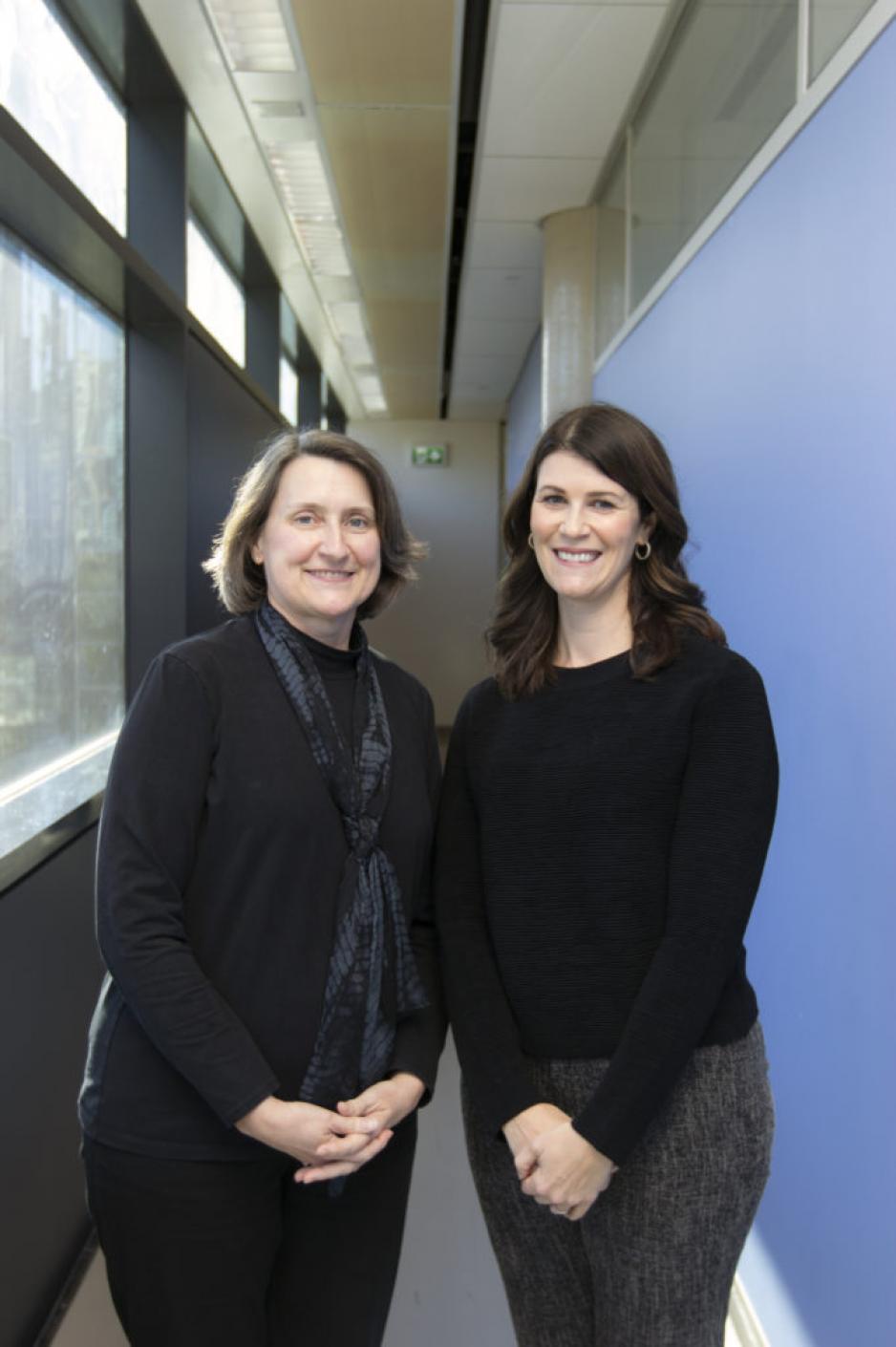After graduating from the Leslie Dan Faculty of Pharmacy in 2006 and working for several years as a practicing pharmacist, Laura Murphy was struck by the prevalence and impact of chronic pain in our society. To find answers, Laura returned to U of T to complete her post-baccalaureate PharmD degree, and is now pursuing graduate studies. The goal of her research is to equip pharmacists to take the lead in ensuring safe and effective use of opioids for pain.
Working alongside Beth Sproule, associate professor and clinician scientist at CAMH, Laura is committed to finding solutions patient-centered solutions.
“One in five Canadians experience chronic pain, and we know that it disproportionately affects certain groups including women, indigenous people, older adults, children, veterans, and people who use drugs,” Murphy said. “Pain is not just a symptom, but is itself a disease that has impact on quality of life to the individual and their family, and an economic and societal cost.”
In coordination with other partners, Murphy and Sproule have developed a framework to help community pharmacists apply opioid use guidelines released in 2017 by the National Pain Centre at McMaster University. The framework was published in the Canadian Pharmacists Journal (CPJ) in January, 2019 and is intended to serve as a tool for pharmacists to identify opportunities to act as opioid stewards in practice during medication reviews and the development of care plans.
“Pharmacists have an important role to play in helping people manage their opioid use,” said Sproule pointing out that pharmacists see patients up to 10 times more frequently than primary care physicians for the management of chronic diseases. “We need to optimize opioid use from both a safety and efficacy point of view.”
The wording of the 2017 guideline is nuanced, and some patients may not be open to changes to their opioid therapy, so implementation may be daunting. The CPJ article provides important background and proposes a framework and communication strategies to help them fit these into pharmacists’ busy practice in an effective way, Murphy explained.
Since publication, a knowledge translation webinar related to the framework was hosted by the Canadian Pharmacists Association (CPhA) in September 2019. Over 650 pharmacists across Canada registered and over 400 participants joined the webinar live, demonstrating the strong interest for this work.
Teaching care providers about pain
Both Murphy and Sproule have also published work on the importance of an interdisciplinary approach to teaching aspiring health care providers about pain. The University of Toronto Centre for the Study of Pain (UTCSP) developed the Interfaculty Pain Curriculum (IPC) in 2002, when very little pain content was taught in health professions programs.
“In 2009, an important Canadian study found that among health sciences faculties, veterinarians got the most training in pain,” says Murphy, an IPC facilitator for 10 years. While individual programs now include more pain content, the IPC still trains 1,000 students from U of T’s seven health care programs every year through its intensive three-day program.
“Pain is best managed through a team approach”
In a 2018 publication, Murphy and colleagues surveyed faculty involved in developing curriculum for six of U of T’s health professional programs (one program was not able to participate) and the IPC to look for gaps and areas of overlap that can inform updates to the curriculum.
The survey respondents indicated that they see the value of interfaculty program, which Murphy believes is due to the real-world focus of the IPC. “In practice, pain is best managed through a team approach, with the person in pain as an important team member. Pain is a complex biopsychosocial issue, and different health care professions need to work collaboratively,” she says.
More News
Image

Grad to Watch: Jackie Fule Liu’s research focuses on better outcomes for diabetes patients
A recent PhD graduate, Jackie Fule Liu combines hands-on skill and big-picture thinking to help tackle diabetes care challenges.
Read More
Image

U of T community members recognized with Order of Canada
Congratulations to Dean Emeritus and Professor K. Wayne Hindmarsh on his appointment.
Read More
Image

Welcoming Ivy Lam as Academic Lead in Climate, Health & Sustainable Care
Assistant Professor Lam will guide the Leslie Dan Faculty of Pharmacy's efforts to embed environmental sustainability across the Faculty.
Read More
